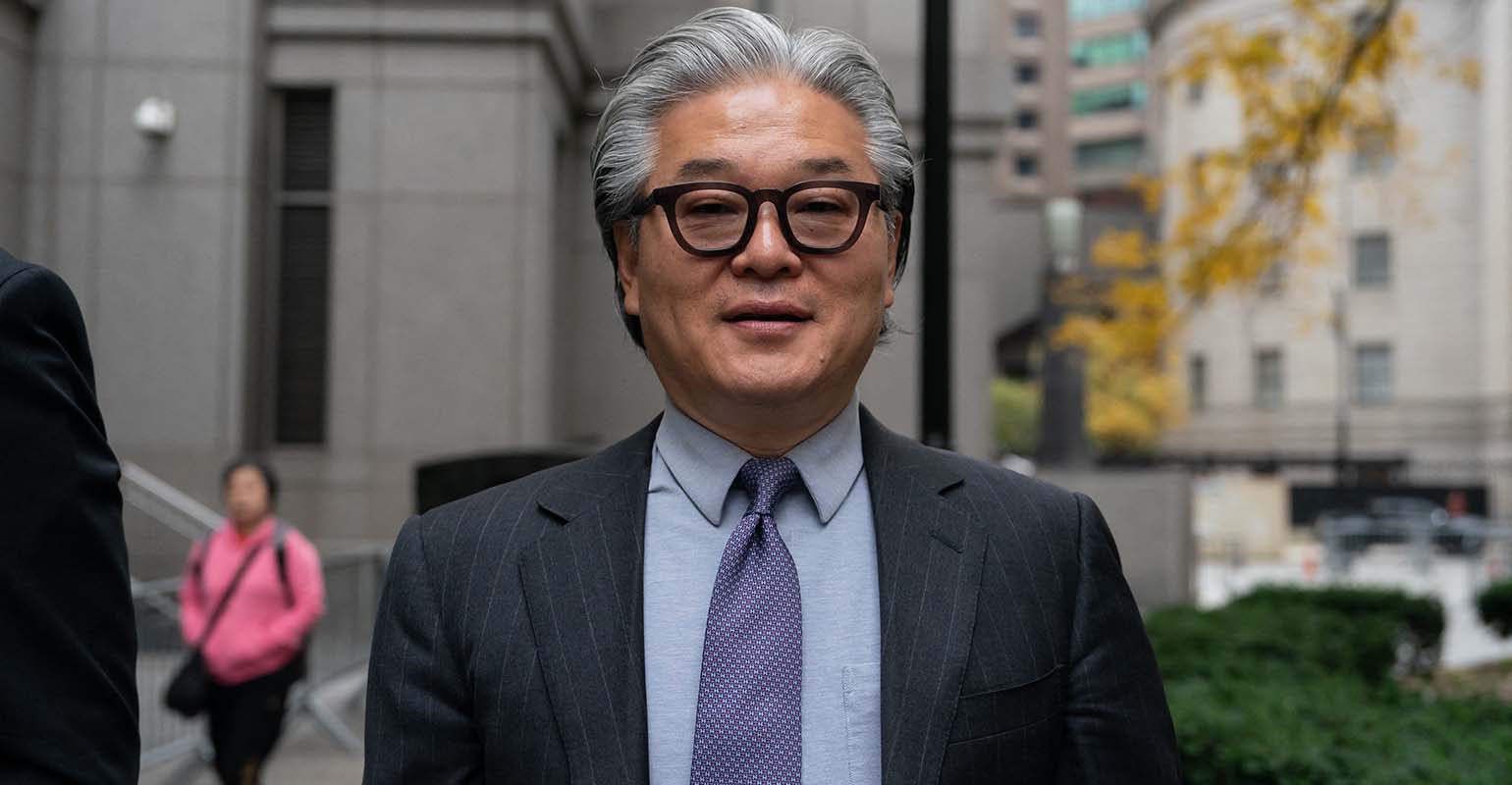Bill Hwang Sentenced to 18 Years in Prison for Archegos Crimes


(Bloomberg) — Archegos Capital Management founder Bill Hwang was ordered to spend 18 years in prison for fraud and market manipulation tied to the stunning 2021 collapse of his $36 billion family office, capping a case that riveted Wall Street.
Hwang, 60, was sentenced Wednesday by US District Judge Alvin Hellerstein in New York. The prison term was slightly lower than the 21 years prosecutors had sought. Hwang’s lawyers had initially asked that he be given no prison time at all.
“The amount of losses that were caused by your conduct are larger than any amount of losses I’ve deal with as a judge,” Hellerstein said.
Hwang was found guilty in July of orchestrating a scheme to mislead his bank counterparties into providing Archegos with billions of dollars in trading capacity that inflated the value of his portfolio until the bubble burst in March 2021. The implosion contributed to the demise of one of the biggest names in finance, Credit Suisse Group AG, and caused significant losses at Morgan Stanley, UBS Group AG, Nomura Holdings and other banks.
Criminal Conviction of Archegos’s Hwang, Explained: QuickTake
Hellerstein signaled throughout Wednesday’s hearing that he intended to impose a tough sentence on Hwang. The judge called his request for no jail “utterly ridiculous” in light of the money involved and compared Hwang to FTX founder Sam Bankman-Fried, who received a 25-year sentence for fraud.
“What was worse? Mr. Bankman-Fried’s fraud or Mr. Hwang’s fraud?” the judge asked.
In the course of the hearing, Hwang’s lawyer Dani James backed down from asking for no jail and suggested a sentence of between four and five years. She stressed his charitable work and humble lifestyle, noting that he still lives in a modest New Jersey home. But the judge expressed skepticism about Hwang’s claim of modesty, noting his “new apartment in Hudson Yards.”
Hwang himself spoke only briefly, saying he felt “deep pain” about what happened at Archegos. After thanking his wife and supporters who wrote letters seeking leniency, he asked the the judge to impose a sentence that would allow him to continue to serve society.
Prosecutor Andrew Thomas argued for a stiff sentence partly on the grounds that Hwang was a repeat offender, noting his previous hedge fund, Tiger Asia, pleaded guilty to insider trading in 2012. Hellerstein said he would consider that in his sentencing and also rejected Hwang’s claims that his actions at Archegos didn’t clearly contribute to the banks’ losses.
That the victims were mainly Wall Street banks set Archegos apart from most big white collar cases. Hwang’s lawyers had planned to argue at trial that the banks were sophisticated players that understood the risks of trading with Archegos but took them in order to earn lucrative fees. Hellerstein largely sided with prosecutors in barring a “blame the victim” defense, which may be a major issue in the planned appeal of his conviction.
The jury found that Hwang directed Archegos staff to tell banks that the firm had large positions in tech giants like Apple Inc. and Microsoft Corp. In reality, its money was heavily concentrated in a small group of fairly illiquid stocks, most notably the company then known as ViacomCBS, that his trading could move. To maximize his trades’ impact, Hwang typically bought swaps, knowing that his counterparty banks would hedge by directly buying shares.
Archegos fell into a fatal spiral after a March 2021 selloff in Viacom shares prompted billions of dollars in margin calls.
The Archegos indictment was the first big white-collar case brought by Manhattan US Attorney Damian Williams after his 2021 appointment by President Joe Biden. Along with the Bankman-Fried prosecution, it was touted as a sign of a more aggressive approach to policing financial crimes. President-elect Donald Trump has said he intends to nominate former Securities and Exchange Commission Chair Jay Clayton as Williams’ successor.
Former Archegos Chief Financial Officer Patrick Halligan was convicted alongside Hwang but will be sentenced separately in January.
The case is US v. Hwang, 22-cr-240, US District Court, Southern District of New York (Manhattan).

Student loans often follow borrowers for years, sometimes decades. Even people who fully understand how much they borrowed can feel...

It was a busy week for RIA aggregators. There were a few large moves, including $235 billion multi-family office Cresset...

Blog Posts Archives UnfavoriteFavorite February 27, 2026 Weave: The Social Fabric Project Subscribe to Weave’s Newsletter This story was originally...